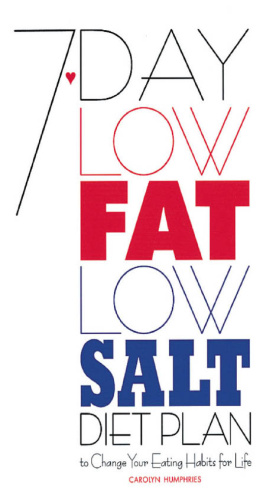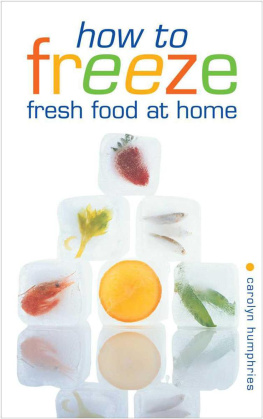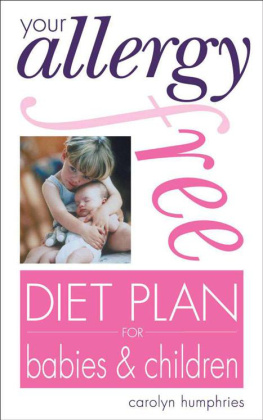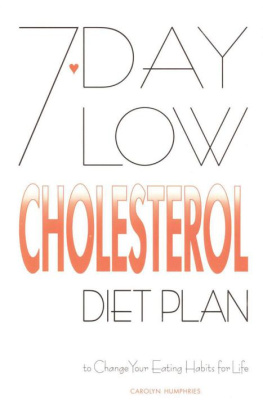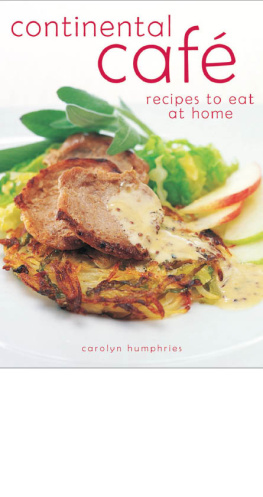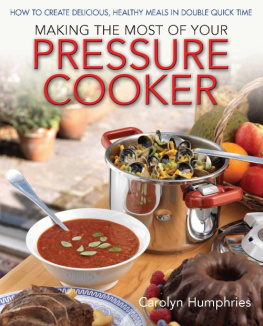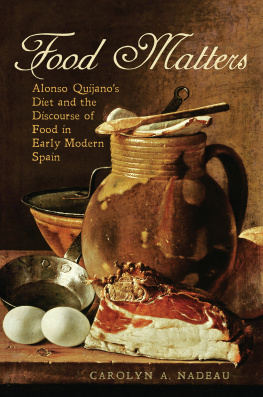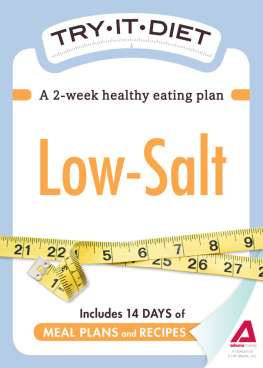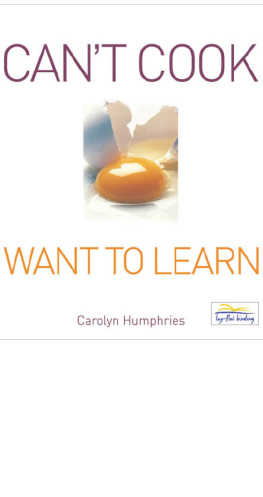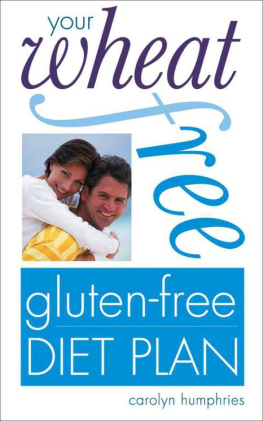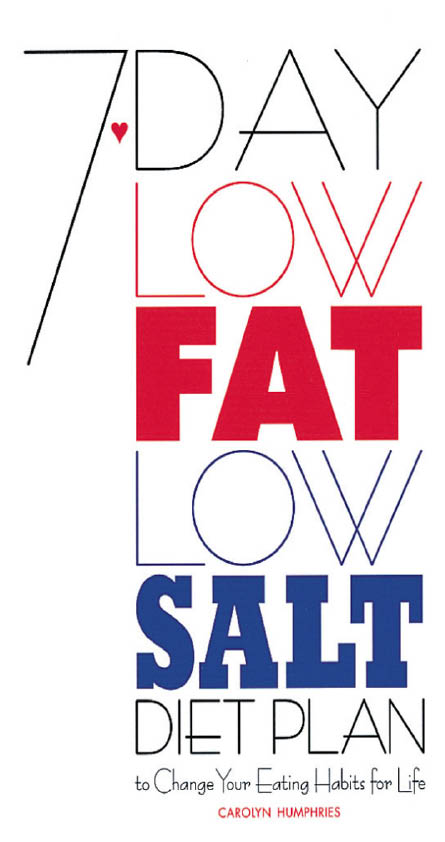First published in Great Britain in 1999 by W. Foulsham & Co. Ltd
Copyright 1999 & 2012 W. Foulsham & Co. Ltd
The Copyright Act prohibits (subject to certain very limited exceptions) the making of copies of any copyright work or of a substantial part of such a work, including the making of copies by photocopying or similar process. Written permission to make a copy or copies must therefore normally be obtained from the publisher in advance. It is advisable also to consult the publisher if in any doubt as to the legality of any copyright which is to be undertaken.
Neither the editors of W. Foulsham & Co. Ltd nor the author nor the publisher take responsibility for any possible consequences from any treatment, procedure, test, exercise, action or application of medication or preparation by any person reading or following the information in this book. The publication of this book does not constitute the practice of medicine, and this book does not attempt to replace your doctor. The author and publisher advise the reader to check with a doctor before administering any medication or undertaking any course of treatment or exercise.
W. Foulsham & Co. Ltd
Introduction
Being told you have to go on a low-fat, low-salt diet may sound daunting and depressing but it doesnt have to be. This little book is designed to give you a healthy, balanced and enjoyable eating plan that wont deprive you of your favourite foods you can still have chocolate cake or roast potatoes if you cook them my way! It also explains all about fats and salt and why you, in particular, need to cut down on them. It tells you how to eat well and wisely and the recipes I have created for you will considerably lower your fat and salt consumption in the most delicious way possible. So enjoy your cooking and eating and feel confident that you are doing everything you can to regain and help maintain your health.
CUTTING DOWN ON FAT AND SALT
Many people are advised to reduce their fat and salt intake because they have high blood pressure . This can lead to strokes and heart attacks. Drugs, of course, can help but by significantly cutting down on both your fat and salt intake, you can considerably lessen the problem.
A second group of people are those with problems of the gut . This can be anything from severe heartburn to a hiatus hernia, gallstones to pancreatic disorders. Reducing fat and salt in the diet will help to alleviate the symptoms.
People suffering from arthritis may also benefit from a diet low in fat and salt.
If you are obese or severely overweight, you will probably have been told to reduce your intake of fat and salt. Restricting the amount of fat you eat will help to bring down the number of calories you consume and so help you lose weight; and as salt causes fluid retention, cutting down on it will also reduce your body mass. In addition, a low-fat, low-salt diet will help reduce the high risk you run of developing other disorders such as high blood pressure.
Whichever group you fall into, you should make sure that you not only eat sensibly but also take regular exercise; dont smoke, and drink alcohol only in moderation, that is a maximum of two or three units a day for women and three or four units a day for a man and at least two alcohol-free days a week. (A unit is a small beer, sherry or glass of wine or a single measure of spirit.)
Fat: Do We Need It?
Fat not only makes other foods more palatable, it is also an essential part of a healthy, balanced diet. It provides warmth and energy and ensures our immune system and muscles work properly. It also keeps our skin soft and supple. We need a certain amount to allow our bodies to absorb the fat-soluble vitamins A, D, E and K and to provide essential fatty acids.
The problem is, most people eat too much. Fat occurs naturally in many foods such as milk, cheese, meat, fish and eggs, so we dont need to add more by spreading butter thickly on bread, dabbing it all over cooked vegetables before we eat them or pouring lashings of cream on our desserts.
And if youve been specifically told to stick to a low-fat diet, you will have to rethink not only what you eat but also how you cook it in order to minimise the amount of added fat.
Are all fats the same?
When you think of fat you probably think only of the white stuff round meat and slabs of butter, margarine and lard (shortening). But vegetable oils such as corn, olive or sunflower oil are also fats, as are fish oils such as cod liver oil. They can, however, be divided into three main groups:
Saturated fats are mostly animal fats which are solid at room temperature. They are found in largest quantities in meat, dairy products and many margarines. Most plant products are low in saturated fats; the exceptions are palm oil and coconut oil which solidify at room temperature and are high in saturated fat. Doctors nowadays advise that everyone, even the healthiest among us, should cut down our intake of saturated fats as they can raise your blood cholesterol level and so increase the risk of coronary heart disease.
Polyunsaturated fats are mainly found in vegetable products, particularly oils like corn and sunflower oil and in polyunsaturated margarines. The polyunsaturates in these products are often referred to as omega 6 fatty acids. They can help lower your blood cholesterol level but only if eaten in moderation. There is now evidence to show that, if they are eaten in excess, free radical reactions take place which change them into harmful substances called lipid peroxides which can cause coronary heart disease. Oily fish such as tuna and mackerel are high in a second type of polyunsaturates often known as omega 3 fatty acids These are thought to help protect against heart disease so try to eat one or two portions a week.
Monounsaturated fats are found in largest quantities in olive oil, avocados and rapeseed oil. They are not thought to have any effect on blood cholesterol levels. In Mediterranean countries where they have a high consumption of olive oil, there is a relatively low incidence of coronary heart disease. But there is a high incidence of obesity in later life, so the message is to consume only small quantities.
Which fats should you choose?
All fats contain the same number of calories and so are equally fattening, but, as I have said, doctors advise that we all avoid having too much saturated fat. Controversy still rages over the virtues of polyunsaturated versus monounsaturated fats. Polyunsaturated fats can have a positively beneficial effect in helping to lower blood cholesterol levels which have been raised by a diet high in saturated fats but, in my opinion, a balanced combination of both is a good idea and if you are striving towards a low-fat diet, I recommend that you use a reduced-fat spread based on either sunflower oil, which is high in polyunsaturates, or olive oil, which is high in monounsaturates. But whichever you choose, you should only have a small amount of it.
Choosing a reduced-fat spread
When you look at the chiller cabinets in the supermarket, you will see there is a whole range to choose from but before you buy, here are a few words of caution:
- Some low-fat spreads which contain less fat overall than conventional margarines are still high in saturated fats. Look at the labels to see how much saturated, polyunsaturated and monounsaturated fat they contain.

